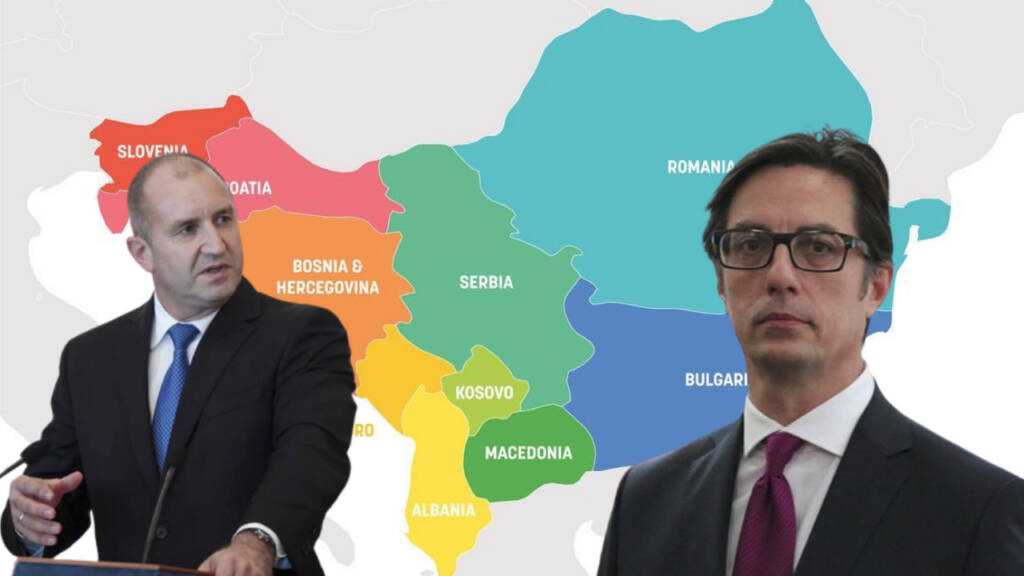In the midst of the Ukraine-Russia war, the EU has been opportunistically exploring ways to address the vulnerabilities in Europe. One of the major areas of focus for the EU has been the Balkans.
But EU’s move has set the Balkans on fire as a strong pro-Russia wave continues to sweep through the region.
EU has been putting up a lot of frantic effort to expand and it is not skipping a beat in the middle of this. However, the admission of North Macedonia and Albania is being hampered by the point of conflict between Bulgaria and North Macedonia.
Historical disputes between North Macedonia and Bulgaria
Bulgaria and North Macedonia are neighbors who have been at odds for a very long time. There is debate on the number of the Bulgarian population in North Macedonia. As per Macedonia’s official census data 3,504 persons or about 0.2 percent of the population Bulgarian population lives in North Macedonia. Whereas Bulgaria has questioned the figure, pointing out that around 90,000 of North Macedonia’s 2 million residents have acquired dual citizenship with Bulgaria during the past 20 years due to their familial ties.
According to Bulgaria, North Macedonia has allegedly been ignoring shared cultural and historical connections. One of Bulgaria’s main requests was the recognition of a Bulgarian minority as well as the acknowledgment that North Macedonia’s language was derived from that of Bulgarian. Due to the entire situation, Bulgaria has decided to block North Macedonia’s road to EU membership.
It continued to block North Macedonia during the General Affairs Council meeting in Luxembourg in June last year. Also, North Macedonia was initially barred in 2020 from joining EU. In fact, because of the fact that Albania’s EU negotiations are bundled together with North Macedonia’s, Albania’s own EU integration process has suffered collateral harm. French President Emmanuel Macron has proposed a compromise for this background. The Bulgarian requests are incorporated into the French proposal’s framework for negotiations between North Macedonia and the EU.
France’s proposal out rightly rejected
The French plan was approved by the parliament in Sofia after Rumen Radev, the President of Bulgaria, determined that it satisfies the majority of his country’s requests of Skopje.
North Macedonia’s Foreign Minister Bujar Osmani went a step further and said that it was a “good proposal.”
However, the majority of the people in North Macedonia have not reacted favorably to this plan. The majority of North Macedonian citizens consider the idea to be a betrayal of their sense of national identity because it would also impose constitutional amendments and other requirements.
The North Macedonian police attempted to de-escalate the situation, and the protestors took to the streets, where there was fighting and exchange of rocks.
The idea, according to protesters, “Bulgarizes” the nation and disregards the history and language of Macedonia. Additionally, the VMRO-DPMNE, the primary center-right opposition party, disagrees, claiming that the agreement promotes Bulgarian demands that call into question the history, language, identity, culture, and legacy of North Macedonia.
Though, the main ruling party of North Macedonia i.e, Social Democrats meanwhile blamed the opposition for the incident, saying they wished to destabilize the country but the reality is that, it’s the EU proposal that has forced the nation on fire.
You see, this indicates unequivocally that the residents of North Macedonia do not plan to compromise their own identity in order to gain EU membership. The people of North Macedonia feel outraged by the fact that their government is acting anti- Russia and there is a pro-Russia wave in making.
Read more: A massive pro-Russia movement has erupted in Bulgaria
Additionally, this gives Russia the chance to expand its influence in these Balkan countries.
Vladimir Putin, however, has already re-launched his push for global hegemony, especially after the Russia-Ukraine conflict. Russia would use these demonstrations to establish itself more and more in the region, seeking to impede the area’s integration into the European Union and damage the reputation of Western-style democracy in Southeast Europe.
